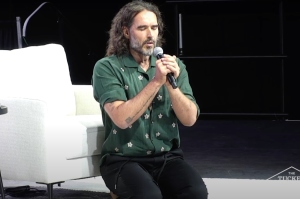Does the VA Scandal Make 'Obamacare' Look Bad?
Conservatives are arguing that the current scandal involving Department of Veterans Affairs hospitals supports their view that the Affordable Care Act, or "Obamacare," will not work well. Liberals counter that the VA scandal involves isolated incidents; with better management and more resources VA hospitals can provide a shining example of government run healthcare.
The current VA scandal, still developing, first became news when a Phoenix, Arizona, newspaper revealed that 40 veterans died while on a long wait list at a VA hospital. Further investigations uncovered that documents had been forged to conceal the problems and administrators at the hospital were given performance bonuses. The investigation has now expanded to 26 VA facilities suspected of providing false information about patient wait times.
The scandal provides a window into the future of government run healthcare under the ACA, some conservatives have argued.
"The fact is, big government is too big for meaningful oversight and effective management from the Oval Office of the White House. ... But why are we surprised the government that runs the post office badly and runs Amtrak badly can't run a healthcare system? Delivering a postcard from A to B or a passenger from point A to point B is a lot simpler than delivering healthcare. So we shouldn't be surprised by this," conservative Washington Post columnist George Will said on "Fox News Sunday."
Sitting on the same panel as Will, liberal USA Today columnist Kirsten Powers countered that VA healthcare is not the same as the ACA. The VA is a "single-payer" system. The government employs all the doctors, provides all the facilities and pays for the care. Patients pay nothing (expect indirectly to the extent they pay taxes.)
"Obamacare and the VA are not the same thing, of course. The VA is really government-run health care where you have the government controlling everything. That's not what Obamacare is. Obamacare is more like insurance. You know, you don't have the doctors working for Obamacare. So, I don't think it's the same thing," Powers said.
As Powers noted, the ACA would have to be more like the healthcare system in Canada or the U.K. for it to be like the VA. The ACA expands health insurance coverage by mandating coverage for certain employers and individuals. Coverage is still provided by private companies that are regulated by the government.
Some liberals, though, have argued that the ACA did not go far enough because it is not a single-payer system like Canada, the U.K. or the VA. President Barack Obama has himself argued that a single-payer system would be preferable, but it would not pass Congress. The ACA was viewed as an alternative that could get passed.
As Ben Shapiro documents for Truth Revolt, liberals have long pointed to the VA when arguing that a single-payer system for the whole country can work well.
During the debate of passage of the ACA in September, 2009, for just one example, liberal New York Times columnist Nicholas Kristof argued for passage of the ACA by pointing to the VA.
"The truth is that government, for all its flaws, manages to do some things right, so that today few people doubt the wisdom of public police or firefighters," he wrote. "And the government has a particularly good record in medical care.
"Take the hospital system run by the Department of Veterans Affairs, the largest integrated health system in the United States. It is fully government run, much more 'socialized medicine' than is Canadian health care with its private doctors and hospitals. And the system for veterans is by all accounts one of the best-performing and most cost-effective elements in the American medical establishment."
In a Saturday op-ed for Forbes, Jeffrey Dorfman argued that the VA scandal demonstrates why the government is not good at providing services. The profit motive to keep customers happy is the reason long wait lines and poor service are less common with private businesses than with government services, he said.
"The true scandal is not that people within the VA created fake waiting lists to hide the real, months-long wait which caused some veterans to die. The true scandal is that such a system was created in the first place. This is how government-provided, nationalized health care works. It budgets money for a certain amount of service and then rations that amount amongst its patients through a waiting system. Canada and Britain are both perfect examples of such health systems that apply to all citizens and the same sorts of tragic deaths occur in both countries thanks to the uncaring hand of government and the lack of a profit motive to encourage anybody to do better," he wrote.
The Obama administration announced Sunday that it will pay private healthcare providers to serve VA patients in order to get rid of the backlog. What the Obama administration sees as a temporary fix, some Republicans see as a permanent fix: privatize the VA hospitals and provide vouchers to veterans so they can get care from any doctor or hospital, they say. This idea is consistent with conservative healthcare reform ideas that seek to use free markets that, they claim, will lower costs and provide better service.
Some Democrats argue, on the other hand, that the VA is simply not well funded and it is the Republican's fault for not providing more money.
"I think most people would agree the VA needs more funding given all the people coming out of these wars. This Republican congress won't fund that," former 2008 Obama campaign manager and White House adviser David Plouffe said Sunday on ABC's "This Week."
Obama claimed on Wednesday, however, that the VA has been well funded during his administration.
"We have made progress over the last five years. We've made historic investments in our veterans. We've boosted VA funding to record levels," he said.
AZcentral.com notes that funding has increased from $97.7 billion in 2009 to $163.9 billion in 2015.
In an interview with Salon, a liberal website, Jon Soltz, co-founder of VoteVets.org was asked what reforms he would support to fix the VA. More funding is needed, he answered, and he supports a bill, voted down by Senate Republicans in February, that would have increased funding by $21 billion over 10 years.



























